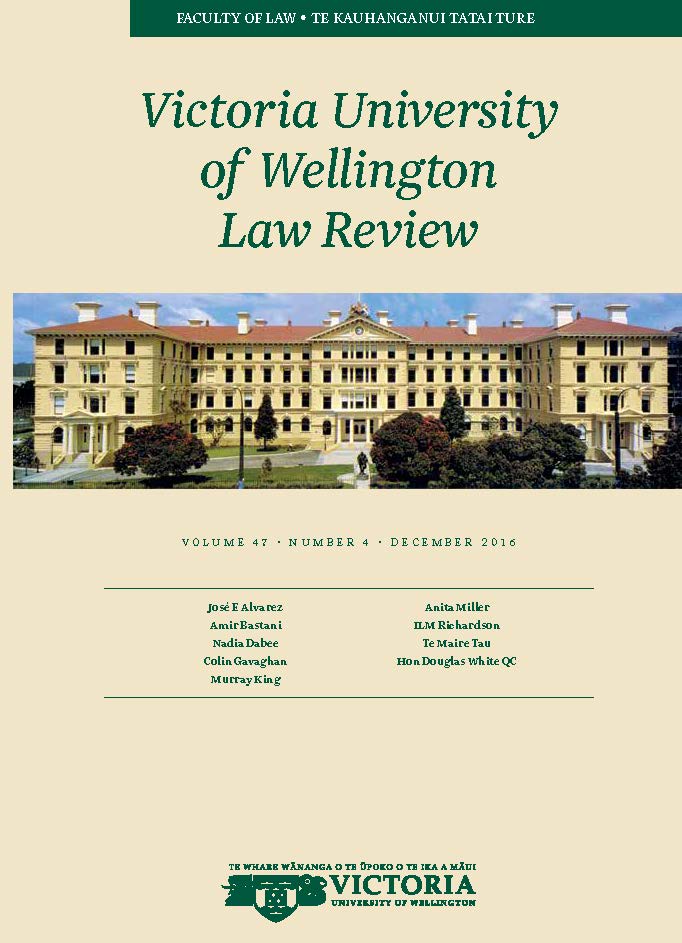Is the Trans-Pacific Partnership's Investment Chapter the new "Gold Standard"?
DOI:
https://doi.org/10.26686/vuwlr.v47i4.4789Abstract
The Trans-Pacific Partnership's Investment Chapter, and particularly its inclusion of investor-state dispute settlement (ISDS), has been the focus of considerable criticism both in the United States and New Zealand. Despite huge differences between these two potential TPP partners, the anticipated economic and political benefits offered by the pact – but also the threats to democracy posed – have been expressed in similar ways by distinct stakeholders in both countries. This essay describes how this chapter is the culmination of reforms to United States investment protection treaties that began with the investment chapter of the North American Free Trade Agreement in 1994 and that are now evident in the latest United States Model Bilateral Investment Treaty (of 2012). The TPP's Investment Chapter borrows heavily from prior United States efforts to narrow investor rights (as with respect to fair and equitable treatment), expand sovereign policy space, and incorporate certain rule of law reforms. For its critics, the pact falls far short of achieving a new "gold standard" precisely because it merely reforms – but does not abandon – ISDS for its enforcement.
Editor's note: The text of this article was originally accepted for publication in March 2016. Recent statements by President-elect Donald Trump indicate that the United States will likely withdraw from further participation in the Trans Pacific Partnership and refrain from ratifying the agreed text. Without the United States' ratification, the agreement will not come into force. Despite this apparent ending to the Trans Pacific Partnership, the editors consider that Professor Alvarez's article remains an extremely useful analysis of investment provisions that may well serve as a model for the negotiation of such provisions in other mega-regional trade agreements in the future.
Downloads
Downloads
Published
How to Cite
Issue
Section
License
Authors retain copyright in their work published in the Victoria University of Wellington Law Review.


